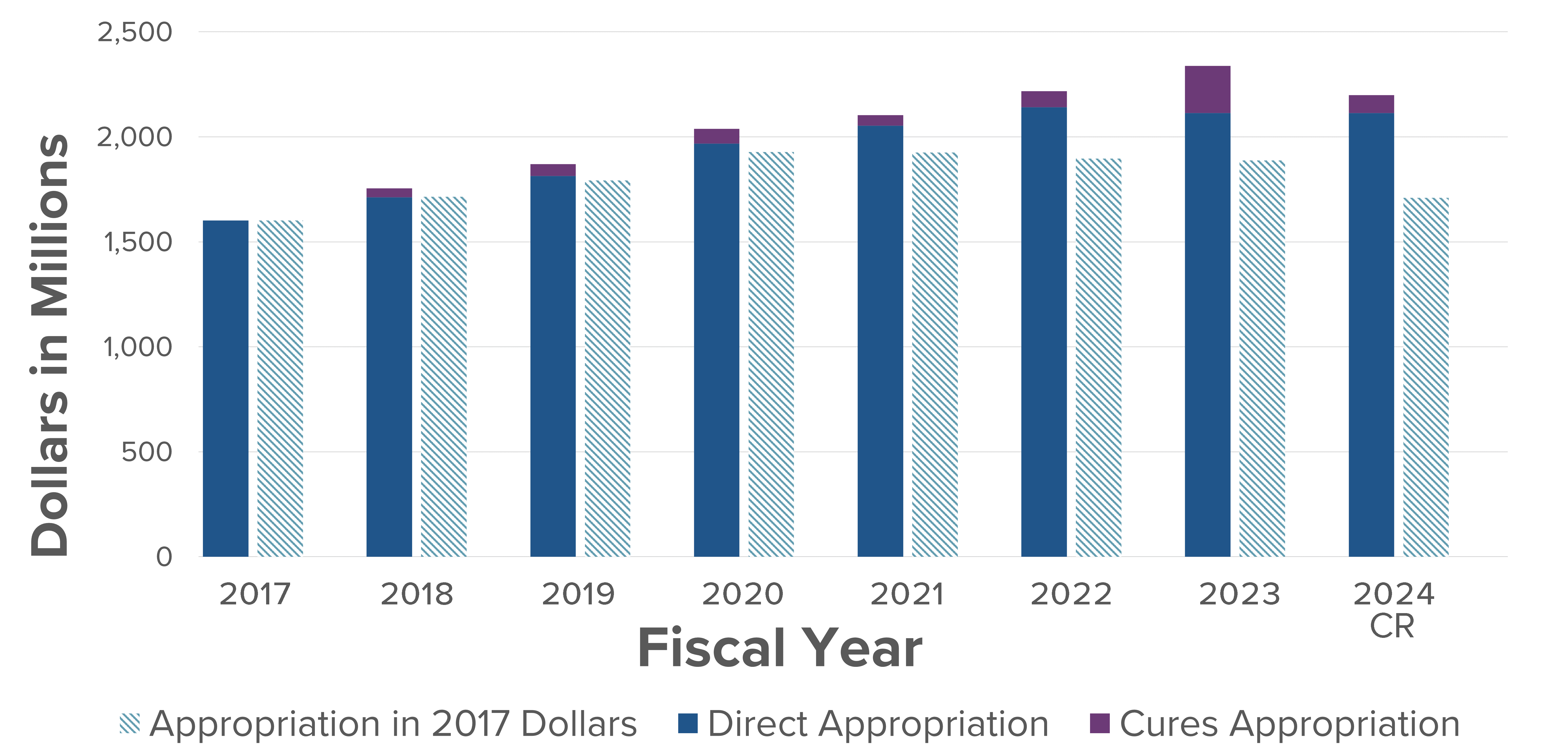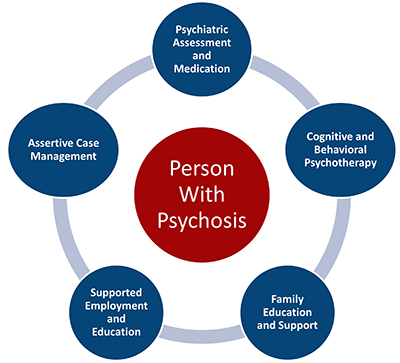NIMH FY 2025 Budget Fact Sheet
The National Institute of Mental Health (NIMH) is the lead federal agency for research on mental disorders. NIMH's mission is to transform the understanding and treatment of mental illnesses through basic and clinical research, paving the way for prevention, recovery, and cure.
NIMH conducts and supports biomedical and behavioral research, health services research, research training, and health information dissemination with respect to the causes, diagnosis, treatment, management, and prevention of mental illnesses.
NIMH is guided by its Strategic Plan for Research, a roadmap for the Institute’s research priorities, spanning fundamental science to public health impact.
NIMH Quick Facts
NIMH Funding History

The graph above shows NIMH’s funding history in actual dollars and constant FY 2017 dollars. The FY 2025 President’s Budget request is $2.5 billion. Figures include funding provided through the 21st Century Cures Act.
* Source: Substance Abuse and Mental Health Services Administration. (2022). Key substance use and mental health indicators in the United States: Results from the 2021 National Survey on Drug Use and Health (HHS Publication No. PEP22-07-01-005, NSDUH Series H-57). ** Awarded number of grants may be different than other tables due to the inclusion of Cures carryover funding in other tables.
Brain mechanisms of stress and reward
Exposure to adverse experiences in early childhood significantly increases the risk of mental illnesses arising in adulthood and can also disrupt the formation of typical reward behaviors. Recently, NIMH-supported researchers discovered a novel connection between the basolateral amygdala–a brain region critical for forming associations between experiences and outcomes–and the nucleus accumbens, which is important for processing rewarding experiences. The researchers found that selectively activating this connection caused impairments in reward behavior, mimicking the effects of early-life stress. These findings are an important step toward better understanding the biological mechanisms of stress-related mental illnesses such as post-traumatic stress disorder, potentially identifying novel targets for prevention and treatment.
Transforming the digital ecosystem
In May 2023, the U.S. Surgeon General released an Advisory on Social Media and Youth Mental Health, calling for swift, multi-sector action to maximize the benefits and reduce the risk of harm posed by social media on the mental health of children and adolescents. Recognizing these risks, NIMH is supporting research on understanding bidirectional relationships between social media use and adolescent mental health, psychiatric symptoms, and risk or resilience for psychopathology. For example, NIMH-funded researchers are investigating: connections between social media use and disordered eating; effects of early smartphone use; and, social media use in minoritized youth. Looking forward, there is a need to identify risk and protective factors for technology and digital media use in youth that could inform potential targets for novel and improved interventions.
Advancing learning health care: Early Psychosis Intervention Network (EPINET)

Launched in 2019, EPINET is a learning health care system for early psychosis, aimed at enhancing coordinated specialty care to improve early identification, diagnosis, clinical assessment, intervention effectiveness, service delivery, and health outcomes. EPINET now has 8 regional scientific hubs and has enrolled approximately 4,000 participants from more than 100 clinics across 17 states. To foster knowledge sharing and promote accessible early psychosis care resources, the EPINET National Data Coordinating Center launched a web portal, making the EPINET Core Assessment Battery available to all early psychosis care clinicians to assess key domains of early psychosis, recovery, and treatment.
